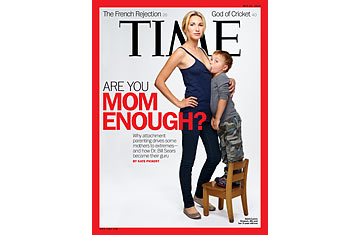
(2 of 5)
Sears, an impressively fit 72-year-old with a deep tan, was raised an "overweight beefeater" in the Midwest. He was born in Miles Davis' hometown of Alton, Ill., about 20 miles north of St. Louis. Sears' father left when he was a month old, forcing him and his mother to move in with his maternal grandparents. While his mother worked as the manager of a dress shop, Sears went to Mass every day and attended Catholic school. "My mother knew I needed discipline, and the nuns made me toe the mark," says Sears. "I still remember Sister Mary Boniface putting her hand on my shoulder, pinching it and saying, 'You behave.'"
Sears mowed lawns and found odd jobs as the neighborhood handyman to help pay his school tuition. "The little old ladies loved me," he says. "At the time, honestly, I thought my childhood sucked. But looking back, I wouldn't change a thing. I think it gave me an appreciation for work ethic." Sears' mother, wanting her son to have positive male role models, paired him with Boy Scout leaders, coaches (Sears was captain of his high school football team) and pastors and priests. This last group was particularly influential.
After he graduated from high school, Sears entered the University of St. Mary of the Lake Mundelein Seminary to become a priest. He studied there for three years, but eventually the desire to have his own family grew strong enough that he dropped out. He graduated from St. Louis University in 1962 and enrolled in medical school there, working as a biology teacher at an all-girls Catholic school to earn money for his tuition. While a senior medical student, Sears was called one day to the bedside of a patient in cardiac arrest. Also on the scene was a new nurse at St. Louis University Hospital.
Her name was Martha, and she had been raised about 30 miles west of Bill's hometown, in St. Peter's, Mo. In addition to sharing a faith — "Growing up, I didn't know any non-Catholics," she says — Martha shared Bill's experience of a difficult childhood. According to Martha, her mother was a diagnosed schizophrenic from a family plagued by mental illness. Peace was hard to find. "There was a lot of anger in my home, a lot of outright fighting, physical punching and stuff like that," says Martha. When she was 4, Martha's father, "the sane parent," she says, died in an accidental drowning. Despite the turmoil, Martha eventually managed to graduate from a Catholic nursing school in St. Louis and met Bill the following year. They got engaged three months later and married six months after that.
The Searses had their first child in 1967, but the couple strayed from their Catholic faith, which caused their marriage to falter. Martha moved out briefly and stopped wearing her wedding ring. Eventually, though, the Searses recommitted to each other and to their faith — this time as evangelicals. Still, when it came to parenting, partly because of her childhood, Martha felt unsure of herself. "We had Dr. Spock," she says. "But when I got to the part where he says if your kid is screaming and wants to get out of the crib, don't get him, let him throw up, I said, 'I'm done with this book.'"
The advice reminded Martha of a relative she knew as a child who had been "a colicky, fussy baby," she says. "And back then, they didn't know what to do with these babies, and she was just left to cry in her crib," which Martha says she believes "damaged her brain." As an adult, this relative married and had children but suffers from mental illness. "That almost is like Exhibit A for the cry-it-out approach," says Martha, referring to a commonly practiced method, developed by Dr. Richard Ferber, of allowing babies to cry for controlled periods in order to get them to sleep through the night. After seeing all this, how could Martha not tell everyone she knew — and millions she didn't — never to let their babies cry? "You could say I'm reacting to my background," she says.
Sears says on his website that "excessive" crying over "prolonged periods" can damage an infant's brain. He mentions that the cry-it-out approach has the potential to cause "harmful neurologic effects that may have permanent implications on the development of sections of their brain." Sears cites a number of academic studies to back up his point.
A close look at the research, however, does not actually provide evidence that bouts of crying associated with sleep training affect brain development. Several papers Sears cites involved studies of rats. At least one looked at babies who suffered from cases of severe neglect or trauma, perhaps like what Martha witnessed as a child but hardly representative of typical parenting. Other research showed that babies who cry excessively are more likely to suffer from, for example, attention-deficit/hyperactivity disorder, but it's not clear if they cry because of underlying neurological problems that later manifest as ADHD or whether the crying causes the ADHD.
